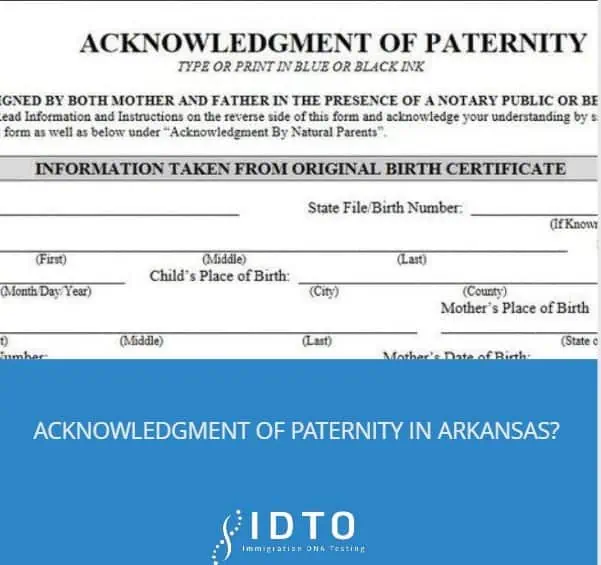
What is paternity establishment in Arkansas?
In Arkansas, paternity establishment is the legal process of identifying and declaring the biological father of a child. Parents can accomplish this through several methods:
- Voluntary Acknowledgment: Parents sign a voluntary paternity acknowledgment form at the hospital when the child is born or later at a vital records office.
- Administrative Process: The Office of Child Support Enforcement helps establish paternity through genetic testing.
- Court Proceedings: A legal action is filed to establish paternity. The mother, alleged father, child, or state typically initiates this action.
Establishing paternity creates legal rights and responsibilities. These include:
- Child support obligations
- Custody and visitation rights
- Inheritance rights for the child
- Inclusion of the child on health insurance
- Access to medical history
Establishing paternity allows a child to discover his or her identity. The child can receive Social Security benefits if the father dies. The father gains the right to make important decisions regarding the child’s upbringing. This process ensures children receive financial support and maintain legal connections to both parents.
Who Can Establish Paternity?
The mother or legal guardian establishes paternity through a court-filed petition. The alleged biological father establishes paternity through the same process. The Judge or Magistrate must accept the petition for validity.
Parents complete a voluntary acknowledgment of paternity (AOP) form at the hospital following childbirth. The Arkansas Department of Health and Human Services (DHHS) orders DNA testing under specific circumstances.
Genetic Testing for paternity determination in Arkansas
This type of testing compares the genetic material (DNA) of the alleged father and child to determine if there is a biological relationship between them. The DHHS may require genetic testing as part of the process of establishing paternity. If both parties voluntarily agree to it, they may also arrange for private genetic testing.
Benefits and Responsibilities of Establishing Paternity in Arkansas
What are the benefits of paternal establishment?
The benefits of the paternal establishment are the child will be able to gain financial assistance for child support, also understanding the parent’s medical history biggest are few of the benefits, Finally, the child
Disestablish paternity
What does the disestablishment of paternity mean?
Disestablishment of paternity refers to the legal process of reversing a court’s determination that a man is the legal father of a child. This process typically requires evidence showing that the man is not the biological father or that the paternity was established based on incorrect information.
The condition for this process involves filing a petition in Family Court and presenting the necessary evidence to support the claim.
Is a birth certificate an acknowledgment of paternity?
A birth certificate can indicate paternity, especially when the father’s name is included with his consent. Here’s a more organized breakdown of how it functions regarding paternity:
Birth Certificate and Paternity
- Legal Recognition:
- A birth certificate acknowledges paternity when the father’s name is present.
- The father typically must sign an acknowledgment form or be involved in the birth registration.
- Voluntary Acknowledgment of Paternity (VAP):
- A separate VAP form provides a stronger legal foundation for establishing fatherhood.
- While a birth certificate suggests paternity, a VAP offers clearer legal confirmation.
- State-Specific Laws:
- Requirements for using a birth certificate as proof of paternity vary by state.
- Many jurisdictions may require additional documentation to fully establish legal rights and responsibilities.
- Presumptions of Paternity:
- For married couples, a birth certificate presumes the husband is the father.
- Unmarried parents often need extra legal documents to confirm paternity.
Key Terms Related to Paternity Establishment
- Birth Certificate
- Voluntary Acknowledgment
- Legal Recognition
- Parental Rights
- Documentation Requirements
In summary, while a birth certificate can serve as an acknowledgment of paternity, it is often supplemented by additional forms or documents to ensure full legal recognition, especially in cases involving unmarried parents.
Related Topics
Acknowledgement of Paternity and Birth Certificate Differences
